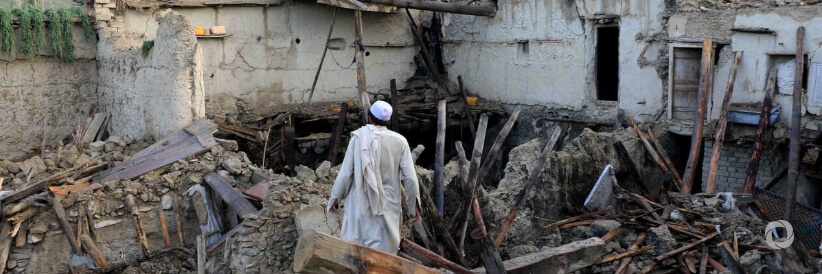The United Nations World Food Programme (WFP) has rapidly deployed food and logistics equipment to support communities devasted by the 22 June earthquake that struck near the city of Khost. 18 trucks are being deployed to the earthquake-affected areas carrying emergency supplies, including High Energy Biscuits (HEB) and mobile storage units.
WFP plans to provide emergency food to an initial 3,000 households and is ready to ramp up its support pending results of ongoing post-disaster assessments.
WFP – together with humanitarian partners – has been assessing earthquake damage and the needs of families on the ground. The remote districts of Giyan and Barmal, Paktika province, and Spera, Khost province are among the areas worst hit. In Barmal, more than 70 percent of homes were completely destroyed. At least 1,000 people have reportedly been killed, with 2,000 others injured. However, rescue efforts have been hampered by heavy rain and winds, as well as poor connectivity in affected areas.
“‘The Afghan people are already facing an unprecedented crisis following decades of conflict, severe drought, and an economic downturn. The earthquake will only add to the already massive humanitarian needs they endure daily, including for the nearly 19 million people across the country who face acute hunger and require assistance. Our teams rapidly mobilized and will continue to provide support to help affected families get through this latest tragedy,” said Gordon Craig, WFP Deputy Country Director in Afghanistan.
WFP works in all 34 provinces of the country and has a fleet of 239 trucks on the road every day, delivering food to some 800 food distribution sites across the country. In May, WFP provided 590,000 people in Paktika province and 320,000 in Khost with emergency food and nutrition assistance. Since the start of 2022, WFP has assisted 18 million people with food, cash, and livelihood support in Afghanistan.

